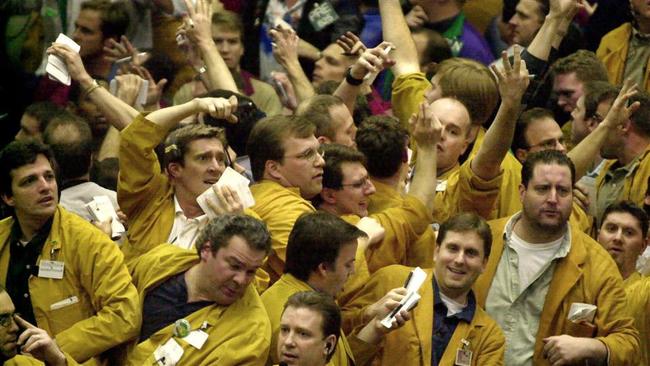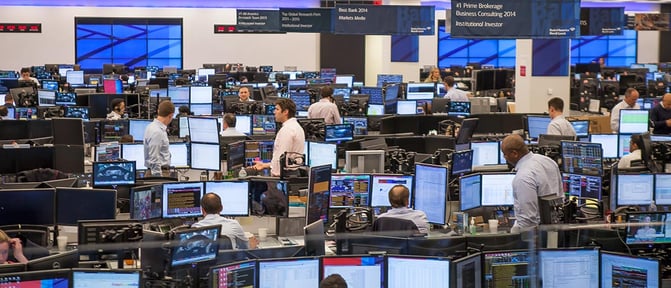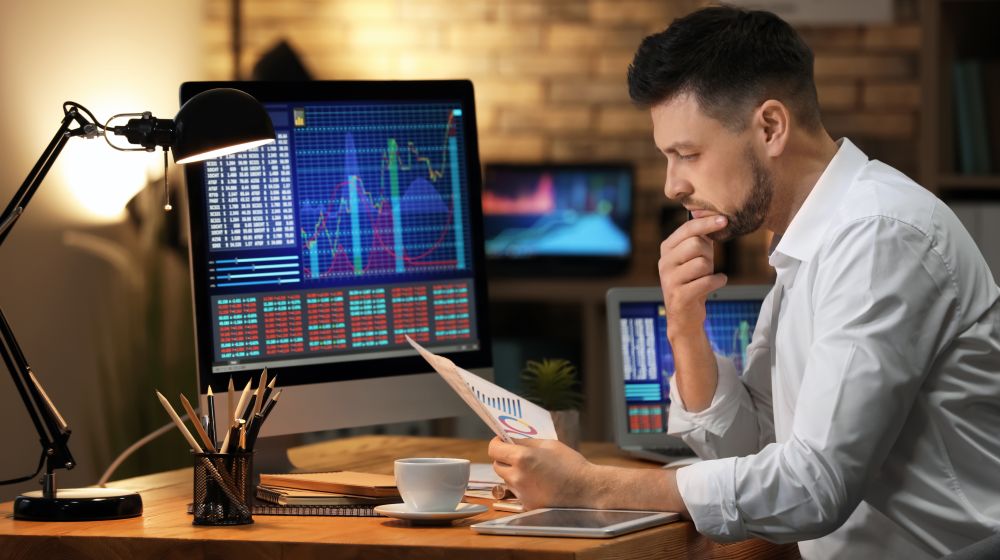If you have ever wondered what a forex trader does, read this quick blog that explains what is forex trading and the job of a forex trader. In the world of global finance, the forex market plays an integral role, enabling trading of world currencies. The Understanding the Forex Market section will shed light on the basics of forex trading, while Characteristics of a Successful Forex Trader explains the traits you need to adapt to thrive in this dynamic market. You will also learn about the diverse Types of Forex Trading Strategies employed by traders worldwide.
Meanwhile, The Role of a Forex Broker section will elucidate the importance of intermediaries in forex trading. It's not all roses, as you will find out in Pros and Cons of Being a Forex Trader, which outlines the benefits and challenges that come with the job. Understanding Forex Trading Platforms will guide you through the various platforms available to execute trades. The Risks Associated with Forex Trading delve into the potential pitfalls and how to navigate them. You will also understand the regulatory framework in Forex Trading Regulations and Compliance.
Finally, Managing Your Emotions in Forex Trading will offer insights into maintaining emotional equilibrium for success in forex trading. This blog aims to provide a comprehensive overview of forex trading, equipping you with the knowledge to embark on your journey in the forex market.
Contents: What Does a Forex Trader Do? What is Forex Trading?
- What is being a forex trader?
- What is Forex trading?
- Understanding the Forex Market
- Characteristics of a Successful Forex Trader
- How to become a forex trader
- Types of Forex trading strategies
- What a forex trader actually does
- Skills needed to be a forex trader
- The role of a Forex Broker
- A Forex trader’s daily routine
- Pros and cons of being a forex trader
- How to practice forex trading
- Understanding Forex trading platforms
- Risks associated with Forex trading
- Forex trading regulations and compliance
- Managing your emotions in Forex trading
What is being a forex trader?
A forex trader is somebody who buys and sells currencies in the global foreign exchange market. Forex traders can be full-time professional traders who earn a living trading forex or part-time investors dabbling in forex for a side-income. These days forex traders typically work in front of a screen instead of in ‘the pits’ like the picture below.
 Picture from a CME trading floor
Picture from a CME trading floor
A forex (FX) trader’s job is to buy a currency low and sell high to earn a profit. In the same way that a market trader selling fruit and vegetables buys the produce at a low price and sells it at a higher price, the same is done by speculators in financial markets. The market trader takes risk by doing this because they cannot be sure to sell all their produce and cover their costs, however the risk is generally well understood and the fruit and veg is priced appropriately.
The main difference is that when global forex market trading, currency traders don’t know whether they will be able to sell the currency they have bought at a higher price and make a profit or be forced to sell it at a lower price and make a loss. The forex trader must speculate which way the currency will go next using techniques like technical analysis or fundamental analysis.
What is Forex trading?
Forex trading is the way you can trade two currencies against one another in forex markets. It’s possible to profit in forex if you buy a currency that strengthens versus another currency. Currency trading is much like day trading stocks but with currencies on the forex market instead of shares on the stock market!
To understand about forex trading in more detail, read our blog What is Forex? | How to trade FX
Understanding the Forex Market
The Forex market, also known as the foreign exchange market, is a global marketplace where currencies are traded. As the largest and most liquid market in the world, it encompasses all aspects of buying, selling, and exchanging currencies at current or determined prices.
Key features of the Forex market include:
- 24-hour Market: Unlike other markets, the Forex market is open 24 hours a day, five days a week, due to the different time zones of the major financial centers around the world. This offers traders a unique opportunity to react to global news and events in real time.
- High Liquidity: The vast amount of currency trading volume ensures low transaction costs and makes it easier for traders to enter and exit trades.
- Low Barrier to Entry: Traders can start with a relatively small amount of capital, making it accessible to a wide range of investors.
Characteristics of a Successful Forex Trader
Successful Forex traders often share a set of unique characteristics. Understanding and developing these traits can increase one's chances of success in the market.
Key characteristics include:
- Discipline: This is perhaps the most important characteristic. Successful traders follow their trading plan consistently, are patient, and don't let emotions drive their trading decisions.
- Risk Management: Successful traders always have a risk management plan in place. They know exactly how much they are willing to risk and have a clear exit strategy for each trade.
- Continuous Learning: Markets are constantly changing and successful traders understand the importance of continuous education. They stay updated with market news, trends, and tools.
How to become a forex trader
Most people that trade forex work for themselves. They invest in forex using their own money so that way all the risk and reward from the results of the trading is theirs.

Bank of America Trading Floor in New York
There is almost no barrier to entry to becoming a forex trader, trading stocks, trading binary options or any other type of financial market. Any individual can choose to invest in a mutual fund with their pension money or sign up with a FX brokerage and get a forex trading account to trade forex. However, the ease of starting should not be confused with the ease of trading itself, which requires specific forex education and experience to become proficient.
Getting a job in forex is typically done by applying to large international banks that have foreign exchange trading departments. You would start as a junior trader or trading assistant and work your way up. If your job is forex trading, you receive a salary plus a performance bonus. However, these are highly desirable jobs and competition is fierce.
Types of Forex Trading Strategies
There are numerous Forex trading strategies that traders can choose from. The best strategy depends on the trader's unique goals, risk tolerance, and time commitment. Here are a few common strategies:
- Scalping: This is a strategy that involves making hundreds or even thousands of trades each day, trying to seize small price movements.
- Day Trading: This strategy involves opening and closing all trades within a single day, with the goal of profiting from short-term price movements.
- Swing Trading: Swing traders hold positions for several days or even weeks, aiming to profit from short- to medium-term price patterns.
Skills needed to be a forex trader
Traders must be able to act fast to new incoming information – be it a sudden change in exchange rates or some news that could soon influence them. This requires a combination of self-confidence and “guts” to make the decision about how to act. Placing a trade is affectionately known in the financial industry as ‘pulling the trigger’.

Those who most comfortable with the high degree of risk that needs to be taken on a regular basis have the best chance of success. Managing risk requires a level head. Most people are tempted into making wrong decisions but successful traders will correct those mistakes quickly before too much damage is done to their P&L (profit / loss).
Analytical skill is also a requirement but ranks surprisingly low in making the difference between who becomes consistently profitable in trading and who doesn’t. Forex traders must be comfortable with basic math but these days the online trading platformed supplied by the forex broker will do all the calculations necessary, including trade size, currency converter, margin requirements and so forth.
The Role of a Forex Broker
A Forex broker acts as an intermediary between the trader and the Forex market. Brokers provide traders with access to the foreign exchange market and make their money through spreads (the difference between the buy and sell price of a currency pair).
Key responsibilities of a Forex broker include:
- Providing access to the Forex Market: Without a broker, individual traders wouldn’t be able to participate in the Forex market.
- Offering Trading Platforms: Brokers provide platforms where traders can execute their trades. Some also offer additional tools for market analysis.
- Customer Support: Brokers should provide reliable customer support to assist traders with any issues or questions they might have.
What a forex trader actually does
Forex trading is almost entirely electronic these days so there is very little need to interact with other forex traders as was once the case, where traders spent all day agreeing trades over the phone or in person on a trading floor.

A foreign exchange trader spends his time reviewing the various factors that affect national economies and forex price charts and uses that information to determine if a currency is over-valued or under-valued relative to another currency. If the trader finds a currency that is undervalued, he/she will buy it with the hopes of selling it later at a better exchange rate. Currencies are traded in pairs, so the trader will either buy the fist currency and sell the second currency or vice versa. Common currency pairs include the USD/GBP, JPY/USD and EUR/USD. Most forex trades are executed in the spot market.
All the factors put together that go into whether to make a buy or sell decision is referred to as the trading strategy. Some forex traders use price momentum to trade foreign currencies into trending markets, other use mathematical indicators to determine if a currency is overbought and due to fall or oversold and due to bounce.
This buying and selling is done through an online trading platform, which gives the trader access to currency markets which would otherwise only be available to banks and institutional investors. Forex platform software typically includes price data, charting and trade execution services all rolled into one.
A foreign exchange trader manages his/her account with forex brokers, creates reports about planned and executed currency trades, analyses price charts and reads the news from various countries. They will spend almost 100% of their time trading in front of a screen. If you are looking for a physically active way to earn money, forex trading might not be the right choice.
A Forex trader’s daily routine
Forex traders typically wake up early to review any change in their existing positions in overnight markets. Just like trading Bitcoin and other digital currencies, trading hours for fiat currencies are 24-hours per day so a trader’s profit and loss could have changed when asleep.

After having breakfast, a trader will often check the forex rates, stock indices, precious metal and other related financial markets perhaps in heat map. They will also check the latest news headlines and review the economic calendar. This gives them a perspective for what’s happening in overall financial markets.
How much actual buying and selling a trader does throughout the day will depend on their trading strategy. Scalpers buy and sell currency all day with quick in and out trades while day traders will typically open a trade near the start of the day and close it before the end of the trading session.
The bulk of a forex trader’s time is spent doing analysis to look for new opportunities, making sure existing trade ideas are still valid and improving the trading strategy.
New traders will often get some help with their spot forex analysis through the use of a forex signal services or with a forex trading course or forex mentor.
Pros and Cons of Being a Forex Trader
Like any other profession, Forex trading has its advantages and disadvantages.
Pros:
- Flexibility: Forex markets operate 24 hours a day, five days a week, providing flexibility for traders.
- Potential for Profit: With the right skills and strategies, there is a high potential for profit in Forex trading.
- Accessibility: The Forex market is accessible to everyone with an internet connection and a small amount of capital to invest.
Cons:
- Risk: Forex trading involves a high level of risk due to the volatile nature of currency markets.
- Emotional stress: The pressure and uncertainty associated with trading can cause emotional stress.
- Requires Knowledge and Experience: Successful trading requires a deep understanding of the market which often comes with experience. Beginners may struggle initially.
Understanding Forex Trading Platforms
Forex trading platforms are software that allows traders to manage market positions, conduct technical analysis, and execute trades. Some popular platforms include MetaTrader 4 (MT4), MetaTrader 5 (MT5), and cTrader. Choosing the right platform depends on a trader's specific needs and preferences.
Risks Associated with Forex Trading
Forex trading comes with several risks:
- Market Risk: Changes in market trends and volatility can lead to potential losses.
- Leverage Risk: While leverage can amplify profits, it can also magnify losses.
- Counterparty Risk: The risk that the broker defaults and is unable to meet their contractual obligations.
Forex Trading Regulations and Compliance
Forex trading is heavily regulated to protect investors. Traders must comply with regulations set by supervisory bodies such as the Financial Conduct Authority (FCA) in the UK, the Commodity Futures Trading Commission (CFTC) in the US, and the Australian Securities and Investments Commission (ASIC). These bodies ensure the brokers' transparency and fairness.
Managing Your Emotions in Forex Trading
Forex trading can evoke strong emotions, such as fear and greed, which can negatively impact decision-making. Successful traders manage their emotions by adhering to a well-thought-out plan, practicing disciplined risk management, and maintaining a balanced lifestyle outside trading.
How to practice forex trading
If you like the sound of being a forex trader, FlowBank offers a demo trading account with 1M Swiss francs or your preferred currency in pretend money to practice trading with in a risk-free environment.
To embark on this enlightening journey and gain insights into the mechanics behind forex trading, explore our comprehensive guide using the anchor link Forex: How Does It Work?. This resource will provide you with the essential knowledge needed to comprehend the inner workings of the forex market and the role of a forex trader within it.





